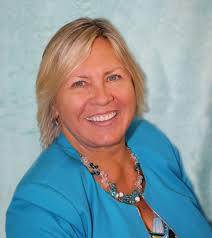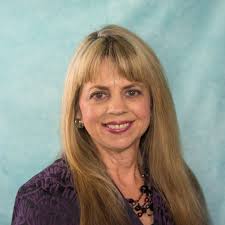Unlike most politicians in Tallahassee and Washington, D.C., those in the Florida Keys don’t mince words when talking about climate change.
How can they with two Key Largo neighborhoods having endured flooded streets for most of the past three months? The flooding arrived with autumn’s king tides and didn’t drain because the surrounding sea is so high. It’s been an unusual year, but leaders expect more, given the impacts of climate change and sea-level rise.
How can they with commercial flood insurance premiums jumping 18 percent a year? Monroe County Mayor Heather Carruthers fears rising insurance costs will put commercial property values underwater in just five years.

How can they after learning it could cost $180 million to raise just three miles of road high enough to last 40 years? Monroe has over 300 miles of county roads. “It’s not all doable,” Rhonda Haag, the county’s sustainability director, told the New York Times.
Some South Florida residents fear such frank talk could financially sink low-lying communities before the water that is coming our way in coming decades.
But denial was not the issue at last week’s annual meeting of the Southeast Florida Regional Climate Change Compact — a coalition of Monroe, Miami-Dade, Broward and Palm Beach County governments, plus 109 cities and two Native American tribal governments.
Rather, we heard an urgency for launching projects — now! — that can calm financial markets, slow insurance spikes and reimagine our region as a world leader in resiliency.

If action is taken now, regional leaders are optimistic that our coastal landscape can be reshaped and remain a vital economic engine for our state and nation. Where Miami Beach raised roads and installed pumps, for example, a city official said condo prices jumped 10 percent.
But first, a gut check, heightened by one of the worst king-tide seasons in memory, the slowing Gulf Stream and the lingering effects of Hurricane Dorian.
Conference presenters showed photos of recent tidal flooding like nothing previously seen in South Florida.
Others showed slides of coral, bird and fish populations in decline because of warmer temperatures and ocean acidification.
Still others raised red flags about the region’s rising groundwater table, sludge-filled canals and aging flood-control gates, some of which are just six inches higher than the water they manage.
For the first time, conference speakers used words like:
* Woke. As in, more people and governments have awoken to the climate crisis this year.
* Retreat. As in, some low-lying neighborhoods cannot ultimately be saved.
* Courageous conversations. It’s time for blunt talk with people living in risky places. Do we buy people out? Who decides?
* Accelerating. Five years ago, experts predicted a two-foot rise in South Florida sea levels by 2060. Now, because of rapidly melting ice sheets and how oceans circulate, this year’s update projected another three to five inches by then.
* Tipping point. If we don’t soon act to reduce the greenhouse gas emissions that are warming our planet, the window of opportunity will close within the decade.
* Lost decade: Under the leadership of former Gov. Rick Scott, Florida refused to address the threats we face from climate change. To this day, state officials cannot say what level of sea rise — if any — is considered when designing roads and buildings meant to last a hundred years.
But all was not doom and gloom at South Florida’s 11th annual climate summit, held this year in Key West.
Also of note:
* Similar climate collaboratives are sprouting in Tampa Bay, East Central Florida, Northeast Florida and Southwest Florida. Soon, it will be hard for state and federal officials to ignore the coalesced voices of regional business, government, academic, nonprofit and neighborhood leaders.
* Because batteries can now store far more energy, solar power is becoming a disruptive technology for the fossil-fuel industry. Rob Kornaherns, owner of Fort Lauderdale’s Advanced Roofing, the state’s largest solar contractor, called battery storage a “real game-changer.” By 2050, he sees everyone “off the grid around the world.”
* Business leaders are engaged. Regional chamber of commerce leaders attended all three days of the conference and made their voices heard.
In one key moment, Ina Lee, a Fort Lauderdale tourism leader, asked the executive director of the South Florida Water Management District why the agency rolled back this year’s tax rate, given that the region’s flood control system needs billions of dollars in fixes.
And who’s accountable, she asked a U.S. Army Corps of Engineers official, for flood-control gates just six inches shy of failure? “Eighteen of these structures are in danger of failing in Broward,” Lee said. “There’s too much at stake if it fails.”
We get the sense that state and federal officials want to act. Drew Bartlett, who runs the water management district, said the agency isn’t waiting for the feds to address a failing flood gate in Miami. And Glenn Landers, of the Army Corps, suggested ways the region could possibly find funds.
It would have been nice to see Florida Sens. Rick Scott and Marco Rubio make an appearance. They didn’t even send a representative.
It would have been nice, too, to see Gov. Ron DeSantis attend as promised. He cancelled due to “extenuating circumstances.” News reports showed him attending Miami’s “Python Bowl Challenge,” instead.
Still, we applaud DeSantis for having appointed a chief resilience officer, Julia Nesheiwat, who told conference attendees she is taking stock of infrastructure needs and addressing resilience with all state agencies. The governor also has appointed a chief science officer, Tom Frazer, who spoke about efforts to stem red tide and blue-green algae outbreaks.
We get the sense, though, that it’s tricky for federal and state employees to say much. It’s understandable, given the political climate in Washington, where Senate Republicans refuse to give climate change a hearing. The same is true in the Florida House, where Republican Speaker Jose Oliva — who lives in Miami, of all places — refuses to address sea-level rise.
Democratic state Rep. Kristin Jacobs of Broward cautions against partisanship in discussing climate change, emphasizing the importance of electing moderates, instead. Jacobs received the compact’s lifetime achievement award this year for her foundational work in its formation, and her leadership on other water issues.
It’s true that water knows no party. In some parts of South Florida in the autumn, the sea invades the homes and businesses of Republicans, Democrats and No Party Affiliates alike.
But we need state and national leaders who recognize that our seas, tides and groundwater tables are rising — and who share our region’s sense of urgency.
We need more politicians like those in the Florida Keys, who like the canary in the coal mine, are calling attention to the danger ahead and demanding action — now!
“The Invading Sea” is the opinion arm of the Florida Climate Reporting Network, a collaborative of news organizations across the state focusing on the threats posed by the warming climate.



